Allowing for doors and other access points in a feature wall can often disturb the sleek, sophisticated look, detracting from the overall design intent. We understand these challenges that designers and specifiers face and have developed solutions, which can meet both the access and aesthetic requirements of a project.
The flexibility of our systems allows for hatches, services and even hidden doors to be detailed quickly without disturbing the clean, linear textures of the feature wall or ceiling. This guide is designed to help you specify and detail concealed doors of varying types on your projects, while avoiding common mistakes.
For assistance in detailing your project-specific applications, contact us to speak to one of our experts.
Concealed access door
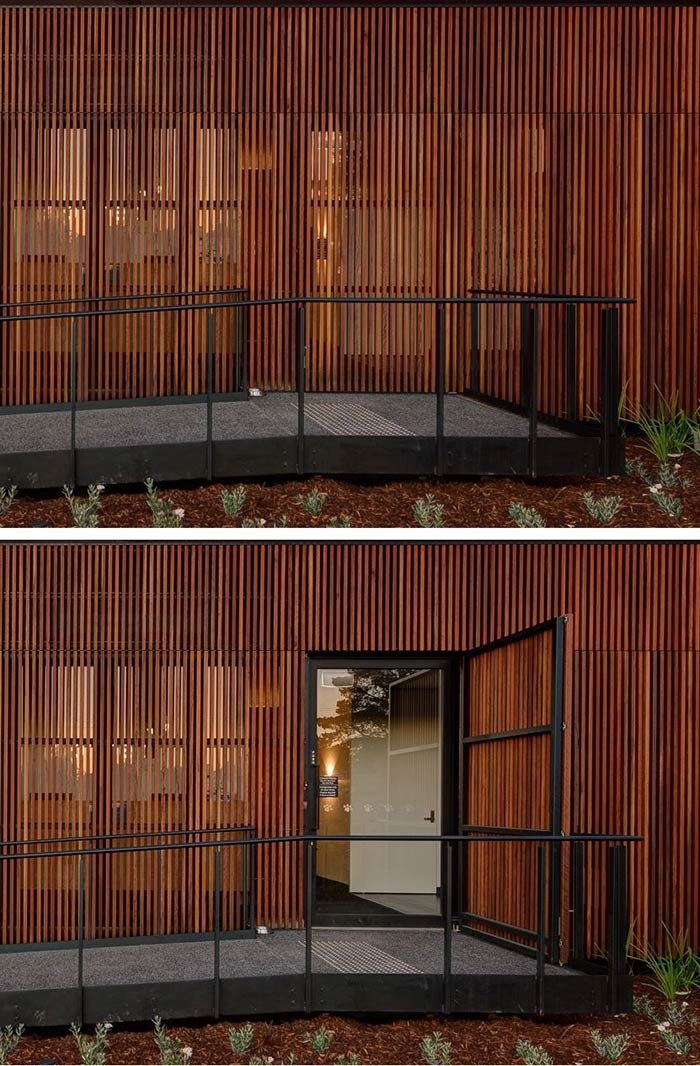
For applications requiring an access door (to a lift shaft or similar), a concealed door can be designed to allow for this with minimal disruption to the feature wall. A panel doubling as a pivot door can be installed over the access panel, allowing access when needed and maintaining the look of the rest of the wall.
Some important considerations for concealed access doors:
- Fire escape or fire access doors have further requirements than the below detail. Consult your fire engineer for the specific needs of your project.
- For the panel to open fully, the battens cannot clash with the battens on the wall when opening. Sculptform can assist with detailing this correctly.
- A handle can be installed, but for the most effective ‘hidden’ finish, the last batten to the edge of the door can be used as a handle.
- To allow for the door in front of the access hatch, the wall may have to come forward to allow for the extra space.
- The flexible nature of the Click-on Batten system allows you to modify the batten profile (size) or spacing (gap between the battens) in order to achieve the required look and functionality.
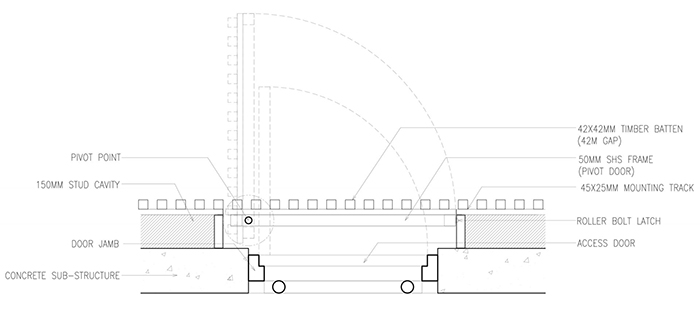
Interior pivot door
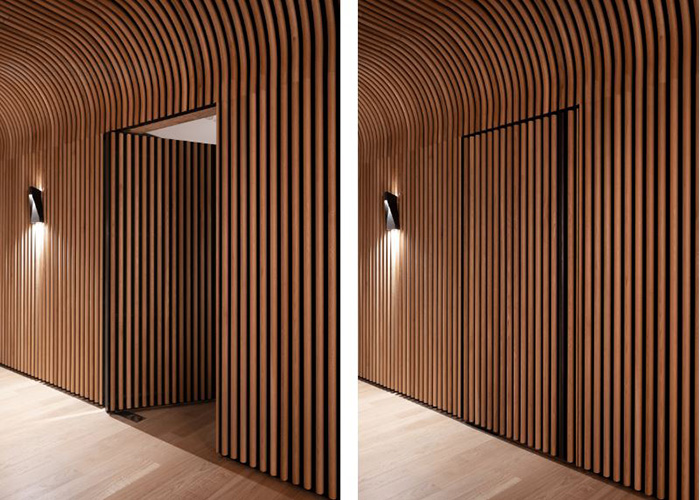
To provide access between rooms or into storage areas etc., an interior pivot door can be incorporated and hidden into the batten or cladding sequence.
Some factors to consider when using a hidden door of this type:
- The type of hinge used to ensure the door opens in or out correctly.
- The sequence of battens used on the door cannot clash with the rest of the wall when opening the door. Sculptform can determine the requirements for your sequence upon request.
- The weight and size of the door is a determining factor in deciding which hinge to use.
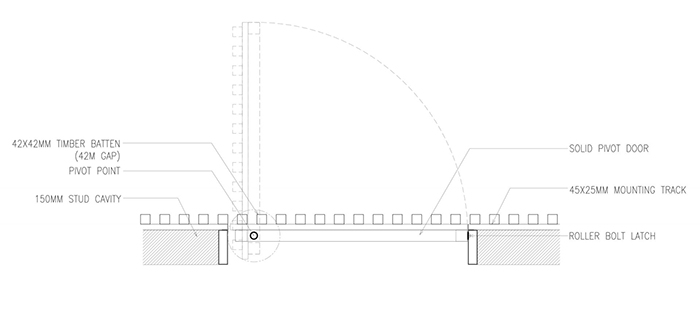
Parliament hinge door
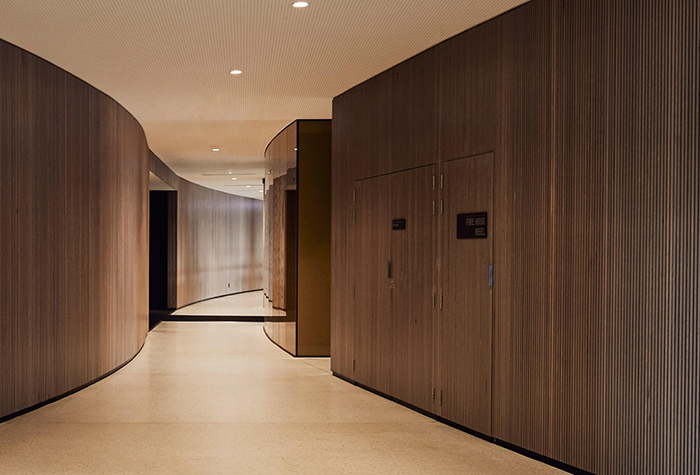
Allowing a larger range of opening, but at the expense of a completely hidden fixing, the parliament hinge is another option for detailing concealed doors. The major benefit of the parliament hinge is the ability to open the door 180 degrees, allowing easier access.
Some considerations when using a parliament hinge on a concealed door:
- The profiles of the battens fixed to the front of the door must not clash with the battens on the adjacent wall when opening.
- The finish of the hinge plays a large part in the overall look of the door; for example, a black powdercoated hinge will look different from a clear anodised hinge.
- Batten size can be considered to help hide the hinge as much as possible.

Bi-fold doors
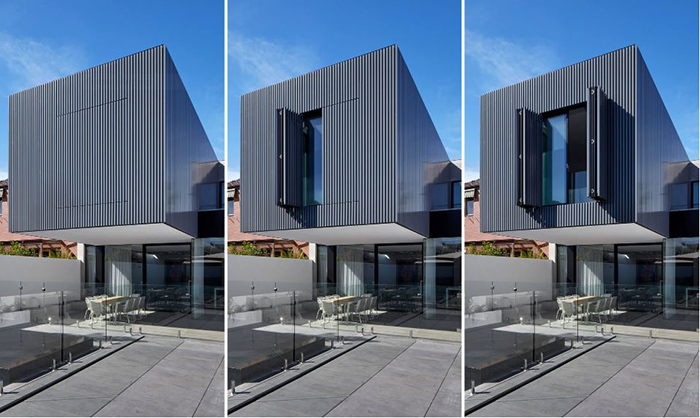
A sleek aesthetic can be achieved by incorporating bi-fold doors into a batten wall with our Click-on Batten system. The doors are completely hidden when closed, merging with the rest of the wall.
In order to achieve this clean look and full functionality of the doors, the following must be considered during the design stage:
- In order to maintain a neat finish and avoid battens clashing when the doors close, the sequence and size of battens must be carefully considered. Contact us to discuss the unique requirements of your project.
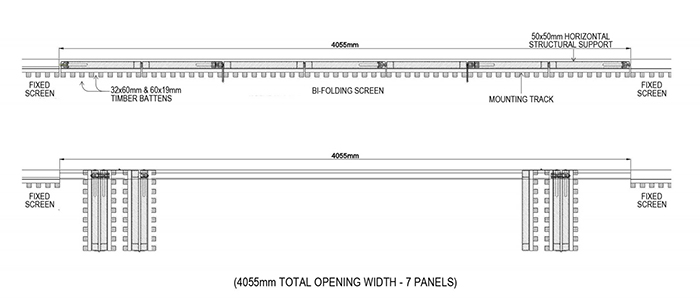
Garage door
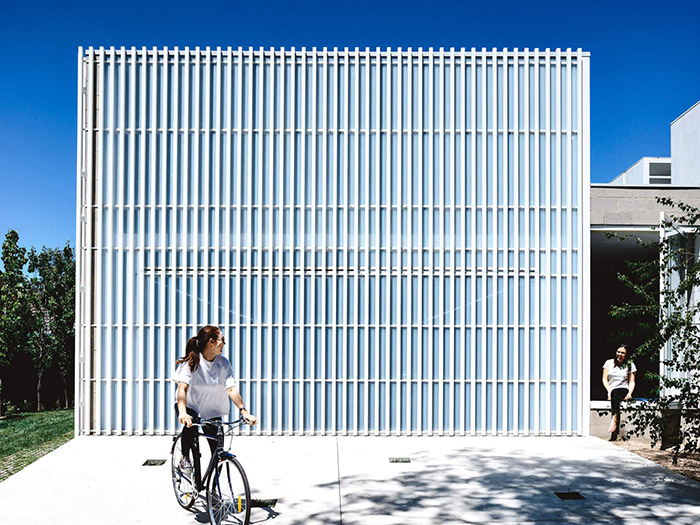
A simple way to provide a natural timber or texture to a garage door is to incorporate our wall and ceiling lining systems. Simple to install, our cladding or battens simply fix to the front of the garage door, helping the door merge with the rest of the wall visually.
Some important considerations when installing cladding or battens over a garage door:
- The weight of the system can be an issue for garage doors. A counterweight door is best; however, always consult your garage door provider. The weight of your sequence can be calculated on our Price and Spec tool.
- The type of door required (roller door, swing door etc.) affects the options available. Consult Sculptform or your garage door provider to ensure compliance and operations.
Have any questions?
Our clients are at the heart of every project. It’s our job to deliver on the big picture and the smallest detail. We’re your proactive design partner – we’ll listen to what you really need and work with you to make sure the job gets done right.
We would love to hear about your next project!

